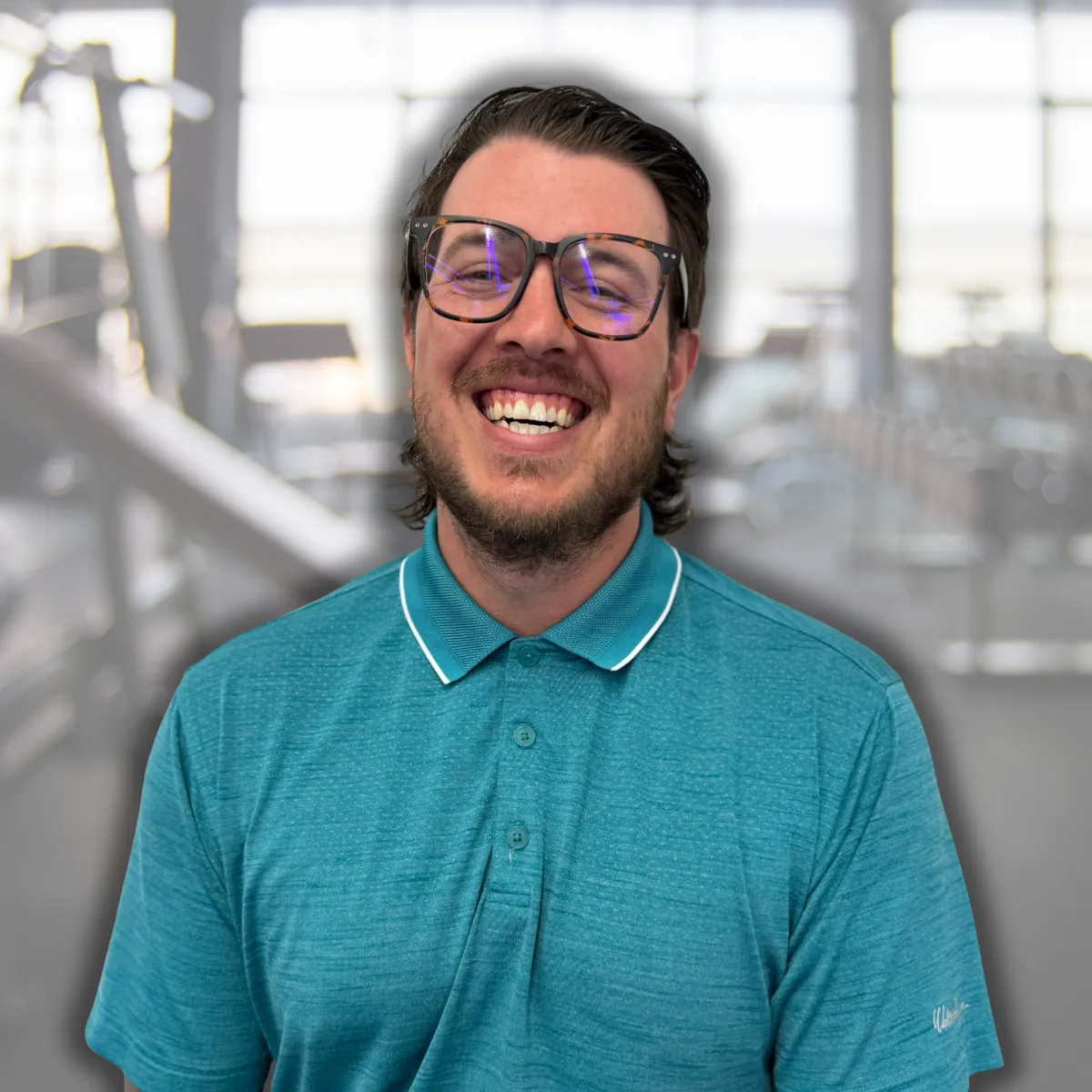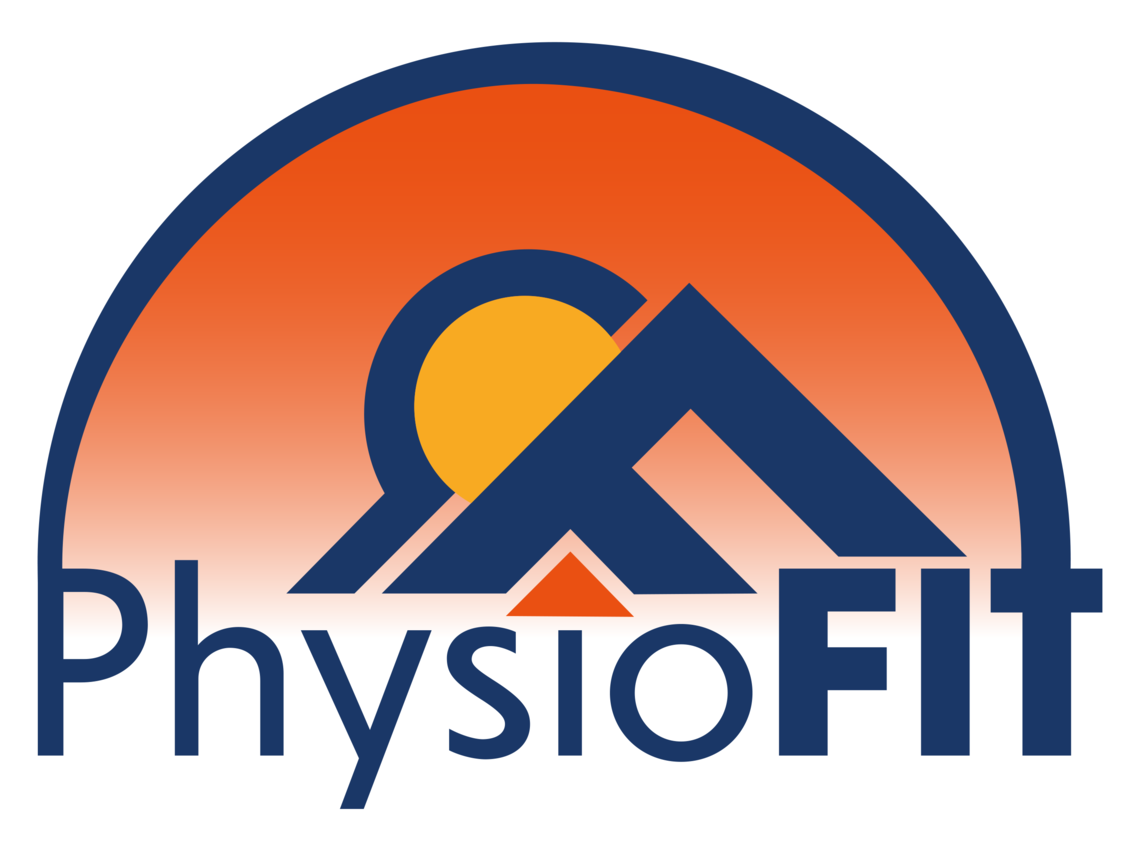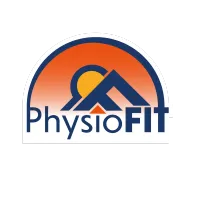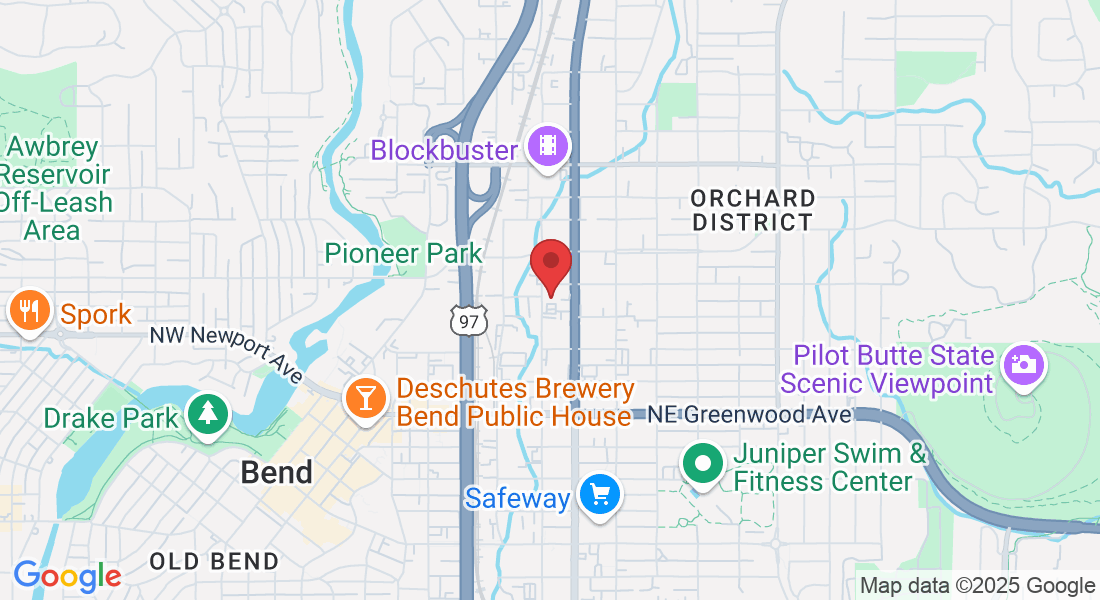Your Source for All Things Physical Therapy in Bend Oregon
The PhysioBLOG
Here, we share informative articles and insights that aim to help you achieve your full potential through our fitness-focused approach to rehabilitation. Our team is dedicated to providing you with valuable tips and techniques that can help you overcome any obstacle, whether you're recovering from an injury, surgery, or striving to build strength and wellness for life.
Stay up-to-date with our latest posts & empower yourself with elegantly simple techniques for optimal health & wellness.

How Physical Therapy at PhysioFIT Can Improve Your Golf Swing
Please Note: The information provided on our website is intended for general education and is not a substitute for professional medical advice. Each individual's situation and body are different. Therefore, what may work for one person may not work for another. We care about your well-being and advise you to reach out to us to discuss your specific needs before implementing any advice from our website. If you’d like to explore this more or would like to schedule a time with a physical therapist in Bend Oregon, contact us at PhysioFITBend.com
Key Takeaways:
Physical therapy can address common golf swing issues: Through specialized exercises and treatments, physical therapy can help golfers improve their swing mechanics, correct imbalances, and optimize their technique to enhance performance on the golf course.
Physical therapy can prevent and treat common golf injuries: Golfers often experience injuries such as rotator cuff strains, golfer's elbow, and lower back pain. Physical therapy can provide targeted interventions to prevent these injuries and help golfers recover faster, allowing them to enjoy the game without pain or limitation.
Increasing range of motion is key for a better golf swing: Physical therapists can design personalized exercise programs to improve flexibility, mobility, and range of motion in golfers. This increased range of motion can lead to a smoother and more powerful golf swing, resulting in greater distance and accuracy.
How Physical Therapy Can Improve Your Golf Swing
Physical therapy has been proven to enhance the efficiency and effectiveness of a golfer's swing. By addressing specific physical limitations and imbalances, physiotherapy at PhysioFIT can optimize your golf swing technique. With a focus on injury prevention and performance enhancement, this specialized treatment improves mobility, stability, and strength, allowing golfers to achieve greater accuracy and distance in their shots.
Furthermore, our expert PT’s at PhysioFIT provide personalized exercises and stretches based on an individual's specific needs, thereby optimizing their golf swing mechanics and reducing the risk of future injuries. By incorporating physical therapy into their routine, golfers can experience significant improvements in their game, enhancing their overall performance on the golf course.
Common Golf Swing Issues
Here are some of the most common golf swing issues:
Incorrect Grip: Inconsistent shots, lack of control, and reduced accuracy.
Poor Posture: Limited rotation, loss of power, and the inability to maintain balance.
Lack of Flexibility: Restricted range of motion, difficulty generating clubhead speed, and increased risk of injury.
Improper Weight Shift: Inconsistent ball striking, loss of power, and difficulty maintaining a consistent tempo.
Over the Top Swing: Out-to-in swing path, slices, and poor trajectory.
Early Release of the Hands: Inconsistent strikes, lack of power, and difficulty controlling the ball flight.
In addition to these common golf swing issues, other important aspects to consider include the importance of proper alignment, tempo, and timing. Addressing these issues can enhance overall performance and improve the golf swing.
To overcome these challenges, it is recommended to:
Seek professional guidance: A skilled physical therapist can analyze your swing mechanics, identify specific areas of improvement, and develop a tailored program just for you.
Focus on strengthening and flexibility exercises: Targeting key muscle groups used in the golf swing can enhance stability, power, and overall performance.
Practice mindful training: By incorporating mental and visual imagery techniques into your training, you can improve concentration, focus, and rhythm.
Utilize video analysis: Capturing your swing on video can provide valuable feedback, allowing you to identify and correct any issues more effectively.
Maintain an active warm-up routine: Engaging in stretches and warm-up exercises before playing can help prevent injuries and improve overall swing performance.
Take regular lessons: Working with a golf coach to refine your swing technique and address any recurring issues can lead to long-term improvement.
By addressing common golf swing issues and implementing these suggested strategies, golfers can improve their swing mechanics, enhance performance, and achieve more consistent and accurate shots.
Most Common Golf Injuries
In the world of golf, injuries are an unfortunate reality for many players. While the sport may appear gentle and relaxed, the repetitive motions and intense swings can lead to a wide range of physical ailments. Here are the top five most common golf injuries:
1. Back Pain: The torque and rotation of the golf swing can put immense pressure on the lower back, leading to strains, sprains, and even herniated discs.
2. Golfer's Elbow: Also known as medial epicondylitis, this injury occurs when the tendons on the inner side of the elbow become inflamed or damaged due to repetitive swinging motions.
3. Rotator Cuff Strain: The rotational forces involved in a golf swing can cause strain or tears in the muscles and tendons of the shoulder, resulting in limited mobility and pain.
4. Knee Injuries: The pivoting and weight transfer during a swing can lead to knee injuries, including meniscus tears, ligament strains, and tendonitis.
5. Wrist Injuries: The repetitive impact of hitting the ball can strain the tendons and ligaments in the wrist, leading to conditions such as golfer's wrist or wrist tendonitis.
While these injuries are the most common, it's important to note that each person's experience with golf-related injuries may vary. Consulting with one of our physical therapists at PhysioFIT, can provide individualized treatment and guidance to address your specific needs.
Golf injuries can easily hinder performance and enjoyment of the sport. By understanding the most common challenges faced on the course and seeking professional guidance, golfers can take proactive steps to prevent and treat these injuries, ultimately achieving optimal physical health and performance.
How Physical Therapy Can Help Golfers
Physical therapy plays a crucial role in optimizing golfers' abilities. By leveraging tailored exercises and techniques, it helps enhance their swing mechanics, improve flexibility, and prevent injuries. Through its targeted approach, physical therapy ensures that golfers can maintain proper body alignment and develop the necessary core strength and balance to execute powerful and accurate swings. Additionally, it aids in rehabilitating any existing injuries and expediting the recovery process. With the integration of physical therapy, golfers can unlock their full potential and elevate their overall performance on the golf course.
Increasing Range of Motion to Improve Golf Swing
Flexibility plays a crucial role in optimizing your golf swing. By increasing your range of motion, you can improve your swing technique, increase clubhead speed, and achieve better overall performance on the golf course. Here's a step-by-step guide to help you enhance your flexibility and ultimately improve your golf swing:
Stretching Exercises: Begin by incorporating stretching exercises into your pre-golf routine. Focus on targeting the main muscle groups involved in your swing, such as the shoulders, hips, and back. Perform dynamic stretches that mimic the movements of your swing to warm up and prepare your muscles.
Mobility Drills: Engage in mobility drills that aim to increase the range of motion in specific joints used during the golf swing, like the shoulders and hips. These drills can include exercises such as arm circles, hip rotations, and thoracic spine mobility exercises.
Yoga or Pilates: Consider integrating yoga or Pilates into your fitness routine. These activities focus on improving flexibility, core strength, and balance, all of which are essential for an efficient and powerful golf swing. Practicing yoga or Pilates regularly can help lengthen and strengthen your muscles, leading to increased range of motion.
Resistance Training: Incorporate resistance training exercises to not only strengthen your muscles but also enhance flexibility. Include exercises that target both the major muscle groups and the smaller stabilizing muscles, as these muscles contribute to your overall range of motion during the golf swing.
Seek Professional Help: Consider consulting with one of our physical therapists at PhysioFIT or a golf fitness specialist who can design a customized exercise program tailored to your specific needs. They can assess your current range of motion and provide specific exercises to address any limitations or restrictions you may have.
In addition to these steps, it is vital to listen to your body and avoid overexertion or pushing beyond your limits. Consistency is key when it comes to improving flexibility, so aim to incorporate these exercises into your regular fitness routine. By increasing your range of motion through targeted exercises, you can enhance your golf swing and ultimately improve your performance on the course.
Conclusion
Physical therapy at PhysioFIT is a game-changer for improving your golf swing. By addressing specific physical issues and imbalances, our therapists can help you achieve a more efficient and powerful swing. Through personalized exercises and techniques, we can enhance your flexibility, strength, and coordination, resulting in a better overall golf performance.
Our experts understand the biomechanics of the golf swing and will tailor your therapy sessions to target areas that need improvement, such as core stability, hip rotation, and shoulder mobility. With our specialized approach, you can take your golf swing to the next level and see significant improvements in your game.
In addition to addressing physical limitations, our physical therapy sessions also focus on injury prevention. By identifying and correcting any imbalances or weaknesses in your body, we can help reduce the risk of common golf-related injuries, such as golfer's elbow or lower back pain. Our therapists will provide you with exercises and stretches that target the specific muscles involved in the golf swing, ensuring that you can enjoy the game without the fear of injuries holding you back.
At PhysioFIT, we have a track record of success in improving golfers' performance. Our approach combines evidence-based practices with individualized attention, allowing us to unlock your full potential on the golf course. Don't let physical limitations hinder your game; invest in physical therapy at PhysioFIT and see the difference it can make in your golf swing.
FAQ
How can physical therapy at PhysioFIT improve your golf swing?
Physical therapy at PhysioFIT can improve your golf swing by addressing common swing issues such as poor balance, posture, and limited joint motion. It can also help reduce pain, improve agility, increase power for longer drives, and enhance strength and mobility. By working with a physical therapist, you can receive a personalized treatment plan to maximize your body's energy transfer during the swing and improve overall efficiency and speed.
What are the most common golf injuries that physical therapy can treat?
Physical therapy can effectively treat common golf injuries such as hunching and rotational stress, shoulder pain, rotator cuff issues, Tennis Elbow (inflammation of the elbow's inner tendon), and knee pain caused by stabilizing and hip rotation during the swing. Through targeted exercises and treatment methods, physical therapy can help alleviate pain, promote healing, and prevent re-injury.
Which exercises can I do to improve my golf swing and avoid injury?
There are several exercises you can incorporate into your routine to improve your golf swing and prevent injury. These exercises include planks to strengthen your core, standing wood chops to enhance torque and flexibility, dumbbell raises/rotator cuff exercises to strengthen shoulder muscles, and lateral lunges to improve hip range of motion. These exercises target key muscle groups involved in the golf swing and can be done without any equipment.
How can physical therapy increase range of motion to improve my golf swing?
Physical therapy can address limitations in mid-back and hip mobility, which are crucial for a proper golf swing. By incorporating specific exercises into your treatment plan, physical therapy can help improve your range of motion in these areas. Improved mobility allows for a smoother and more efficient swing, enhancing your overall performance on the golf course.
Please Note: It's important to note that any exercises or techniques that are shared should be performed under the guidance of a qualified bend physical therapy expert to ensure correct technique and to prevent injuries. A physical therapist can provide a customized exercise program based on the individual's fitness level, goals, and any existing injuries or conditions. If you’d like to explore this more or would like to schedule a time with a physical therapist in Bend Oregon, contact us at PhysioFITBend.com
Ask The Experts

PT, MSPT, OCS, CF-L1

PT, DPT, TPI, CF-L1

PT, DPT, CSCS
Copyright PhysioFIT 2025 . All Rights Reserved


